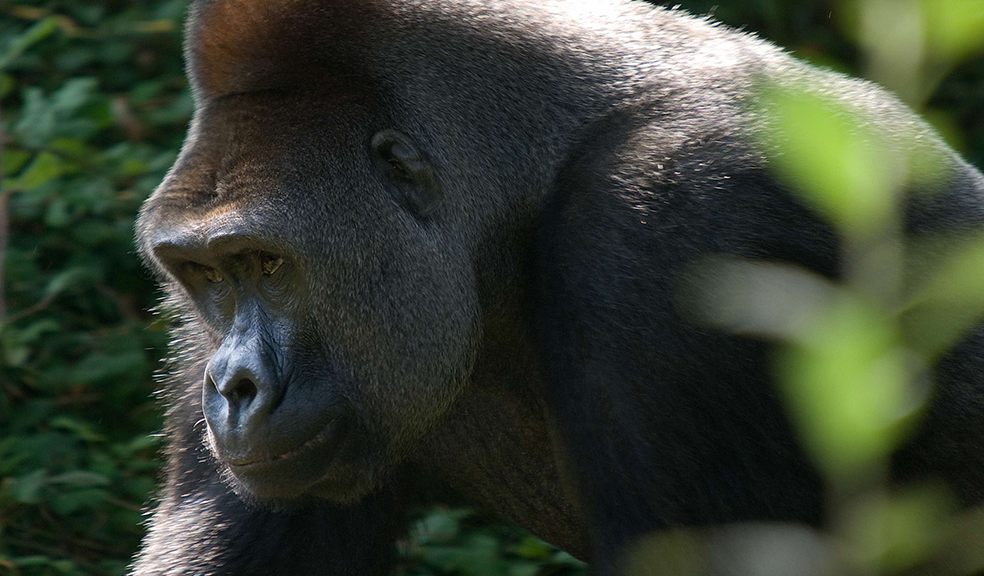
OAP the Old Age Primate
In a lovely little place not far from the sea, the old fella takes it easy. He has a garden, a nice view and people who come in every day to look after him. He’s got bad feet, declining eye-sight and bowel problems.
Oh, and he’s a 190 kilo gorilla…
Pertinax the Western lowland gorilla, who stood down from his role as boss of the all-male troop at Paignton Zoo, is an OAP – an Old Age Primate. He’s old for a wild gorilla, though zoo gorillas can live longer because of good vet care. The need for specialist geriatric care in zoos is growing, as Paignton Zoo Head Vet Ghislaine Sayers explained:
“Animals live for longer in zoos because they get such good care. In the wild, animals die of starvation, predation and disease. This brings with it a whole new issue – how we care for older animals. Providing geriatric care for a gorilla is similar to providing it for an older person – although there are added complications. We can’t ask Pertinax to come into the consulting room so we can check his blood pressure or take samples!
“Actively looking for problems before they become severe can help us to detect diseases at an early stage and allow us to treat that disease, or prevent it from becoming worse, and make the animal’s life more comfortable and ensure a good quality of life.”
Dr Amy Plowman, Director of Living Collections: “We carry out welfare assessments and old age health checks on older animals. These combine keeper reports of behaviour, weight and body condition scores, urine checks and potentially an anaesthetic to allow us to get blood samples - to look at kidney and liver disease - blood pressure, radiographs to look for arthritis and check for heart disease.”
These checks are similar to the old age health checks that humans get, where we are weighed, measured, our lifestyle investigated, blood samples and urine samples taken and blood pressure measured.
As a result of his health and welfare checks, Pertinax has been given more things to play with and greater access to bigger indoor areas. He’s been prescribed something to keep him regular and nutritional supplements for his skin. He’s had dental work and an endoscopy to check for bowel changes.
Ghislaine again: “Depending on an animal’s results, we might prescribe nutritional supplements, painkillers or anti-inflammatories. We might look at altering an enclosure to make an animal’s life easier, by getting rid of large steps and providing slopes, for example, adding deeper and softer beds, providing extra warmth in winter and so on.” Sometimes, even for a gorilla, it’s the little things that make the big difference…




















